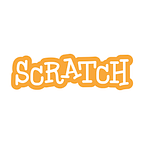Exploring Engagement and Well-being in the Scratch Community
By Nikita Khalid and Maria Janelli, Scratch Team
As many parents and educators know, kids worldwide use Scratch in ways that are driven by their interests: A middle school girl in the United States uses Scratch like a diary, bringing to life a cast of characters through which she explores identity and relationships. A teenage girl in Germany uses Scratch to raise awareness of issues that are important to her, such as women’s rights, LGBT equality, and poverty. And a high school boy in India uses Scratch to demonstrate the physics law of reflection. What is the connection between these various types of engagement and children’s well-being?
To answer that question, the Scratch Foundation is building on the educational research that sits at the center of Scratch’s ethos. Thanks to generous support from The LEGO Foundation, researchers at Scratch are examining the relationship between engagement and well-being among children around the world who create and express themselves with Scratch. This exciting new study, conducted in partnership with an advisory group of experts in the field, aims to delve deeply into the patterns and themes that emerge when children use Scratch.
The study focuses on two primary research questions and uses both quantitative and qualitative methodologies. The first question explores how we can identify, measure, and ultimately design to support children’s engagement with Scratch. By analyzing platform data from various countries, genders, and ages, the researchers hope to uncover patterns in the types of activities in which children engage and identify the primary user pathways they follow. Our research team will also investigate the themes that emerge in projects and studios: What proportion of projects are educational (made in school contexts), instructional (designed to teach their peers), or just for fun?
The second research question contributes to newly emerging research about children’s well-being in the digital age. In this part of the study, the Scratch Foundation will examine platform data to identify whether or not there are correlations between three key indicators of well-being — social connection, competence, and autonomy — and Scratchers’ creativity. Our researchers will also explore how these relationships vary across countries, genders, and ages.
One of the most exciting aspects of this study is its focus on children’s self-reflective spaces within Scratch. By analyzing the themes that emerge in the “About Me” section of user profiles, for example, the research team hopes to gain insights into how children express their identities and represent diversity, equity, and inclusion in their online presence.
The study will also delve into the emotional experiences of Scratchers, using children’s micro-feedback to learn more about how creating with Scratch makes them feel. By examining the emotions that are beneficial or detrimental to learning, the researchers seek to understand how Scratch relates to children’s feelings when they make projects and interact with other Scratchers.
This research study has the potential to shed light on the complex interplay between engagement and well-being in digital learning environments for children. By understanding how children interact with Scratch and how it impacts their emotional and social development, we can create more effective and empowering digital tools for the next generation of learners.
Stay tuned for updates on this exciting research project and its implications for the future of education in the digital age.
Special thanks to our colleagues at The LEGO Foundation and the LEGO Group, as well the Scratch Foundation’s research advisory group:
- Dorothy Bennett, Director of Creative Pedagogy at the New York Hall of Science
- Drew Gitomer, Rose and Nicholas DeMarzo Chair in Education at the Rutgers University Graduate School of Education
- Andrés Henriquez, Director of STEM Education Strategy, US Division at the Education Development Center
- Anastasiya Lipnevich, Professor of Educational Psychology at the Graduate Center at the City University of New York
- Medha Tare, Senior Director of Research at the Joan Ganz Cooney Center at Sesame Workshop
- Craig Watkins, Ernest A. Sharpe Centennial Professor and the Executive Director of the IC2 Institute at the University of Texas at Austin
